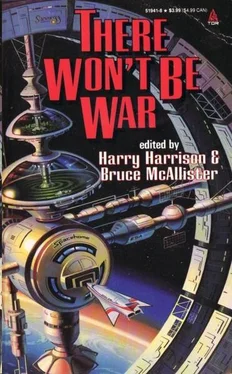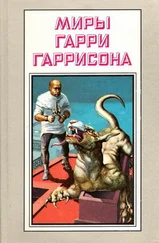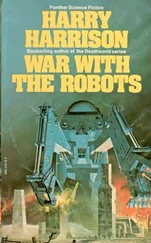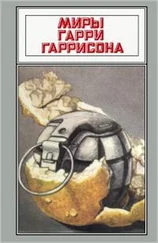Too weak to walk any further, Traven sat down between the tracks. With one hand he began to excavate the wedge-shaped grooves from a drift into which they disappeared, hoping that they might lead him toward the sea. He returned to the bunker shortly before dawn, and slept through the hot silences of the following noon.
The Blocks
As usual on these enervating afternoons, when not even the faintest breath of offshore breeze disturbed the dust, Traven sat in the shadow of one of the blocks, lost somewhere within the center of the maze. His back resting against the rough concrete surface, he gazed with a phlegmatic eye down the surrounding aisles and at the line of doors facing him. Each afternoon he left his cell in the abandoned camera bunker and walked down into the blocks. For the first half hour he restricted himself to the perimeter aisle, now and then trying one of the doors with the rusty key in his pocket—he had found it among the litter of smashed bottles in the isthmus of sand separating the testing ground from the airstrip—and then, inevitably, with a sort of drugged stride, he set off into the center of the blocks, breaking into a run and darting in and out of the corridors, as if trying to flush some invisible opponent from his hiding place. Soon he would be completely lost. Whatever his efforts to return to the perimeter, he found himself once more in the center.
Eventually he would abandon the task, and sit down in the dust, watching the shadows emerge from their crevices at the foot of the blocks. For some reason he always arranged to be trapped when the sun was at Zenith—on Eniwetok, a thermonuclear noon.
One question in particular intrigued him: “What sort of people would inhabit this minimal concrete city?”
The Synthetic Landscape
“This island is a state of mind,” Osborne, one of the biologists working in the old submarine pens, was later to remark to Traven. The truth of this became obvious to Traven within two or three weeks of his arrival. Despite the sand and the few anemic palms, the entire landscape of the island was synthetic, a man-made artifact with all the associations of a vast system of derelict concrete motorways. Since the moratorium on atomic tests, the island had been abandoned by the Atomic Energy Commission, and the wilderness of weapons, aisles, towers, and blockhouses ruled out any attempt to return it to its natural state. (There were also stronger unconscious motives, Traven recognized, for leaving it as it was: if primitive man felt the need to assimilate events in the external world to his own psyche, twentieth-century man had reversed this process—by this Cartesian yardstick, the island at least existed, in a sense true of few other places.)
But apart from a few scientific workers, no one yet felt any wish to visit the former testing ground, and the naval patrol boat anchored in the lagoon had been withdrawn five years before Traven’s arrival. Its ruined appearance, and the associations of the island with the period of the Cold War—what Traven had christened the “pre-Third”—were profoundly depressing, an Auschwitz of the soul whose mausoleums contained the mass graves of the still undead. With the Russo-American detente this nightmarish chapter of history had been gladly forgotten.
The Pre-Third
The actual and potential destructiveness of the atomic bomb plays straight into the hands of the Unconscious. The most cursory study of the dream-life and fantasies of the insane shows that ideas of world-destruction are latent in the unconscious mind. Nagasaki destroyed by the magic of science is the nearest man has yet approached to the realization of dreams that even during the safe immobility of sleep are accustomed to develop into nightmares of anxiety.
—Glover: War, Sadism and Pacifism
The Pre-Third: the period had been characterized in Traven’s mind above all by its moral and psychological inversions, by its sense of the whole of history, and in particular of the immediate future—the two decades, 1945-65—suspended from the quivering volcano’s lip of World War III. Even the death of his wife and six-year-old son in a motor accident seemed only part of this immense synthesis of the historical and psychic zero, and the frantic highways where each morning they met their deaths were the advance causeways to the global arma-geddon.
Third Beach
He had come ashore at midnight, after a hazardous search for an opening in the reef. The small motorboat he had hired from an Australian pearl diver at Charlotte Island subsided into the shallows, its hull torn by the sharp coral. Exhausted, Traven walked through the darkness among the dunes, where the dim outlines of bunkers and concrete towers loomed between the palms.
He woke the next morning into bright sunlight, lying halfway down the slope of a wide concrete beach. This ringed what appeared to be an empty reservoir or target basin, some two hundred feet in diameter, part of a system of artificial lakes built down the center of the atoll. Leaves and dust choked the waste grilles, and a pool of warm water two feet deep lay in the center, reflecting a distant line of palms.
Traven sat up and took stock of himself. This brief inventory, which merely confirmed his physical identity, was limited to little more than his thin body in its frayed cotton garments. In the context of the surrounding terrain, however, even this collection of tatters seemed to possess a unique vitality. The emptiness of the island, and the absence of any local fauna, were emphasized by the huge sculptural forms of the target basins let into its surface. Separated from each other by narrow isthmuses, the lakes stretched away along the curve of the atoll. On either side, sometimes shaded by the few palms that had gained a precarious purchase in the cracked cement, were roadways, camera towers, and isolated blockhouses, together forming a continuous concrete cap upon the island, a functional megalithic architecture as gray and minatory, and apparently as ancient (in its projection into, and from, time future), as any of Assyria and Babylon.
The series of weapons tests had fused the sand in layers, and the pseudogeological strata condensed the brief epochs, microseconds in duration, of the thermonuclear age. “The key to the past lies in the present.” Typically the island inverted this geologist’s maxim. Here die key to the present lay in the future. The island was a fossil of time future, its bunkers and blockhouses illustrating the principle that the fossil record of life is one of armor and the exoskeleton.
Traven knelt in the warm pool and splashed his shirt and trousers. The reflection revealed the watery image of a thinly bearded face and gaunt shoulders. He had come to the island with no supplies other than a small bar of chocolate, expecting that in some way the island would provide its own sustenance. Perhaps, too, he had identified the need for food with a forward motion in time, and envisioned that with his return to the past, or at most into a zone of nontime, this need would be obviated. The privations of the previous six months, during his journey across the Pacific, had reduced his always thin body to that of a migrant beggar, held together by little more than the preoccupied gaze in his eye. Yet this emaciation, by stripping away the superfluities of the flesh, seemed to reveal an inner sinewy toughness, an economy and directness of movement.
For several hours he wandered about, inspecting one bunker after another for a convenient place to sleep. He crossed the remains of a small landing strip, next to a dump where a dozen B-29’s lay across one another like dead reptile birds.
The Corpses
Once he entered a small street of metal shacks, containing a cafeteria, recreation rooms, and shower stalls. A wrecked jukebox lay half-buried in the sand behind the cafeteria, its selection of records still in their rack.
Читать дальше












